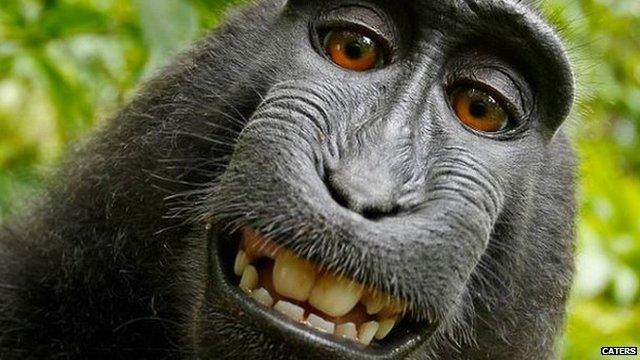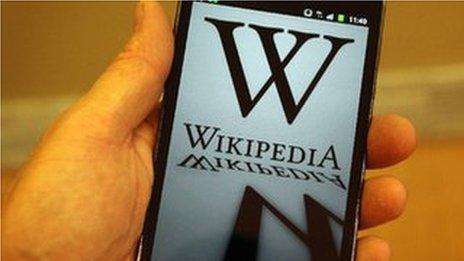Photographer 'lost £10,000' in Wikipedia monkey 'selfie' row
- Published
Wikipedia has refused to remove photos of a monkey from its site
A photographer involved in a copyright row with Wikipedia over a monkey "selfie" says he has lost £10,000 in income over two years because of it.
David Slater, from Coleford in the Forest of Dean, said the web-based encyclopaedia had repeatedly refused to remove the image from its site.
He said there had been no interest from anyone in buying the image since it was declared to be in the "public domain".
The site said Mr Slater did not own the copyright as he did not take the photo.
Mr Slater told BBC News he relied on the income from his photographs to make his living.
"I made £2,000 [for that picture] in the first year after it was taken. After it went on Wikipedia all interest in buying it went.
"It's hard to put a figure on it but I reckon I've lost £10,000 or more in income. It's killing my business."
Mr Slater said he spent three days in Indonesia shadowing the monkeys in 2011.
'Give monkey the button'
"I became accepted as part of the troop, they touched me and groomed me... so I thought they could take their own photograph.
"I set the camera up on a tripod, framed [the shot] up and got the exposure right... and all you've got to do is give the monkey the button to press and lo and behold you got the picture."
A series of his images brought smiles to faces worldwide as the photos were published, and paid for, in magazines and news websites.
But they also ended up on the web encyclopaedia to illustrate the critically-endangered Macaca nigra, external - the crested black macaque.
Mr Slater said he had requested that Wikipedia either paid for the use of the image or remove it but neither happened.
The debate about the picture resurfaced on Wednesday as the Wikimedia Foundation published its first transparency report - following a similar practice by Google, Twitter and others.
Later the page containing the image had been "nominated for deletion", external on the grounds it is "copyright David Slater", and "Wikimedia is displaying it unlawfully".
- Published7 August 2014

- Published6 August 2014
